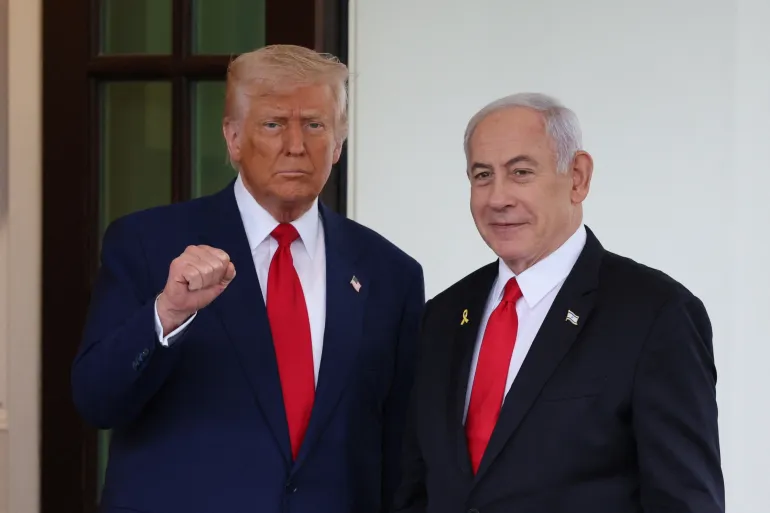Tensions in the Middle East are rising once again as Qatar and the United States move closer to finalizing a defence pact, even as former U.S. President Donald Trump sharply criticized an Israeli strike on Doha. The development comes at a delicate time, with ongoing ceasefire negotiations aimed at halting violence in Gaza.
A Growing Defence Partnership
According to sources familiar with the matter, Qatar and the U.S. are in advanced discussions to strengthen their military and security cooperation. The proposed pact would likely include joint training exercises, intelligence sharing, and access to strategic military infrastructure. Analysts believe the agreement is part of Washington’s effort to maintain influence in the Gulf region amid shifting alliances and ongoing regional conflicts.
For Qatar, the pact offers security assurances and reinforces its strategic role as a mediator between Western powers and regional players. The country has, over the years, hosted dialogue efforts between adversaries and provided humanitarian aid during crises, which has positioned it as a key diplomatic actor.
Trump’s Strong Reaction
Adding fuel to the diplomatic fire, former President Donald Trump condemned the Israeli airstrike on Doha, calling it an unnecessary escalation during a time when ceasefire talks are underway. Trump’s remarks underscore divisions within global leadership circles over how best to handle the Israel-Palestine conflict.
“Striking Doha while negotiating peace? Unacceptable,” Trump reportedly said in a public statement. His criticism has rekindled debates over the role of military interventions and the responsibilities of allies in ensuring regional stability.
The Gaza Ceasefire Efforts
The defence pact talks and Trump’s reaction are unfolding against the backdrop of intense efforts to end the Gaza conflict. Qatar has been a critical player in mediating between Hamas and Israel, pushing for humanitarian corridors and the release of hostages. U.S. officials, alongside international mediators, are trying to broker a ceasefire to prevent further civilian casualties and economic devastation in the region.
However, the Israeli strike on Doha — seen by many as a signal of military assertiveness — threatens to complicate diplomatic outreach. Critics argue that such actions undermine trust-building efforts and risk prolonging the conflict.
Regional and Global Implications
The proposed Qatar–U.S. defence pact signals a recalibration of alliances in the Gulf, where energy interests, security threats, and great-power competition intersect. With growing concerns over Iranian influence and extremist groups, deeper military cooperation may be viewed as a necessary step to safeguard critical shipping lanes and deter aggression.
At the same time, Trump’s condemnation reflects the political divisions in how different actors approach Middle Eastern conflicts. While some advocate for robust military responses, others urge diplomatic engagement and humanitarian solutions.
What Lies Ahead
As discussions between Qatar and the U.S. move forward, all eyes will be on how the pact is structured and whether it includes provisions that address regional sensitivities. Observers note that for Qatar, balancing relations with both Western and neighboring powers will be crucial.
Meanwhile, ceasefire negotiations in Gaza remain fragile. The latest events highlight how easily military escalations can derail diplomatic efforts, forcing mediators to walk a tightrope between power politics and peacemaking.
The coming weeks will likely define not just the fate of the Qatar–U.S. pact but also the broader trajectory of peace talks in the region. With tensions escalating, the world watches as diplomacy, military strategy, and political rhetoric collide at a pivotal moment.





